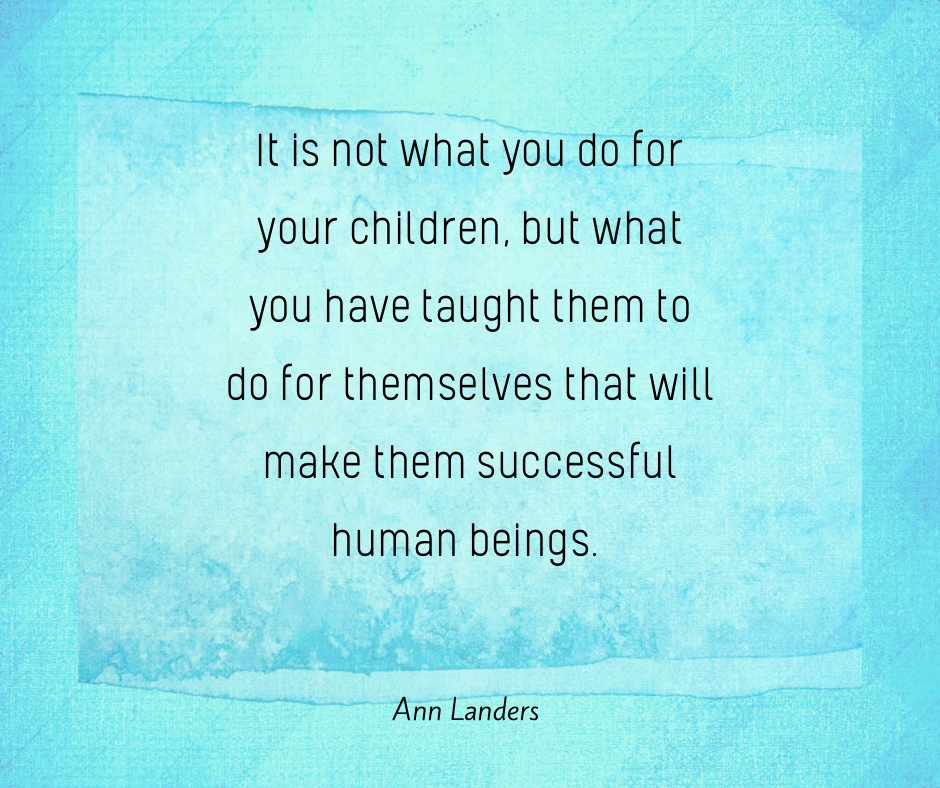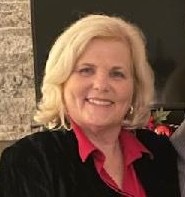
Recently I watched my three year old grandson struggle to get his shorts off so he could jump into the swimming pool. My daughter had the wisdom to refrain from immediately stepping in to rescue him and encouraged him to work on getting them off by himself. This win for my daughter’s parenting skills brought to mind a parenting failure of mine decades ago. It occurred during a parent-teacher conference for my first born, when I heard his kindergarten teacher say, “You do too much for your son.” I was shocked. I thought the way to be a good parent was to do things for your child.
I wish I had known then what I know now. Ann Landers said it well, “It is not what you do for your children, but what you have taught them to do for themselves that will make them successful human beings.” Sounds simple, but simple doesn’t mean easy..
So how do you find that delicate balance of nurturing caregiving that leads to independence in children? Ideally you start when they are as young. A recent article in Today’s Parent online magazine lists eight practical tips for teaching kids to be more independent. Psychologist Jeanne Williams offers these tips to time-crunched parents doing too much for their children in the name of efficiency. This is a short term fix. A better method is to target one task at a time children can take responsibility for and give them the freedom to do it without criticism. This is the beginning of developing children who are self-reliant and confident in their own abilities to do things for themselves.
What about older children? An article in Focus on the Family: Learned Helplessness: When Kids Give Up Trying byMichael Anderson addresses the topic of learned helplessness, what The American Psychological Association calls the “landmark theory of the century.” Learned helplessness is a condition where children no longer believe they can positively affect the direction of their lives and they lose hope. One of the primary factors in learned helplessness is over-parenting. The good news is that what has been learned can also be unlearned. Anderson offers practical remedies such as cutting back on the things you do for your child, avoiding nagging and criticism while holding them accountable to reasonable agreed upon expectations. Begin building their confidence and abilities in one area and watch it spread and grow into other areas as well.
I am wiser now as a grandmother than I was as an over-parenting mother. I have more life experience and can see the results of my efforts, which were not all bad. My son recently earned his law degree and is practicing law. His was a long and winding road to find his path and purpose. Perhaps my grandson will benefit from having a grandmother who has taken to heart Ann Landers words, “It is ..what you have taught them to do for themselves that will make them successful human beings.”
Resources
Today’s Parent: 8 Tips for Teaching Kids to be More Independent; Do you do too much for your kids? It’s time to flip the script. Jackie Gillard, Sept. 29, 2020
Focus on the Family: Learned Helplessness: When Kids Give Up Trying Michael Anderson
Adapted from GIST: The Essence of Raising Life-Ready Kids, a Focus on the Family resource published by Tyndale House Publishers. © 2019 by Michael W. Anderson and Timothy D. Johanson. Used with permission. This article was originally published in Focus on the Family magazine.
Written by: kathie@parentledacademy.org


 Copyright 2018
Copyright 2018